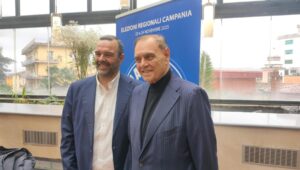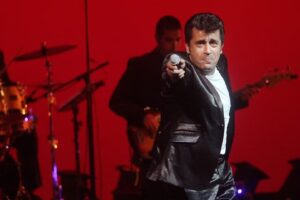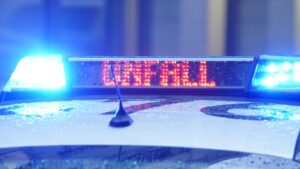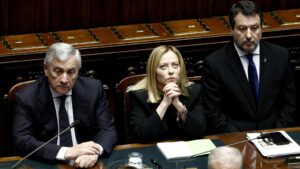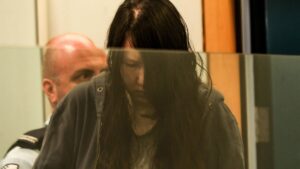
Juan Carlos I takes advantage of his memories to offer for the first time his version of the coup d’état of February 23, 1981 and the role he played that night, which has been the subject of much speculation and controversy. “I have nothing to hide,” he proclaims. The first thing he does is deny that he has lost confidence in Adolfo Suárez and that this fact precipitated his resignation as President of the Government in January of that same year. “It was stated that I had distanced myself from him. Nothing could be further from the truth. He maintained my trust, my recognition and my sincere friendship. But my role was then limited by the Constitution (in force since December 1978), an institutional distance on my part was then required”, he explains to explain his coldness towards him. The King reveals that Suárez communicated his decision to resign to him in one of his usual offices. “It is neither necessary nor mandatory for you to resign,” she claims to have told him. To which he replied: “I have made my decision and I will not go back.”
One of the darkest episodes of those days is the interview the King had with General Alfonso Armada, one of the main leaders of the rebellion, in the Baqueira Beret ski resort on February 6, weeks before the coup. Queen Sofia returned to Madrid that day due to the unexpected death of her mother in a minor cosmetic surgery, but the head of state remained in the Pyrenees to meet with the then military governor of Lleida, who had been her military preceptor and close collaborator for more than two decades and whom he himself promoted to second head of the army against Suárez’s advice. “I wanted to gauge the mood of the military and get first-hand information,” he says to justify that meeting.
“(Armada) didn’t communicate anything to me that alerted me,” says Juan Carlos I. “You hear things in the barracks…” he told me. “You have to be vigilant. What is the mood of the colonels?”, I asked him. “They are calm”, he replied”, the king emeritus now remembers that interview. He assures that the general did not reveal to him that he had lunch with the socialist leader Enrique Múgica and adds: “Surely everyone was playing with fire and I understood it too late”.
However, according to his account, there was no shortage of signs of what was to come. Juan Carlos I reveals that, two months before the coup, his father, the Count of Barcelona, had lunch with Lieutenant General Jaime Milans del Bosch, who confessed to him: “Before I retire I will take the tanks into the streets.” When Don Juan de Borbón told this to his son, he thought it was a jokebut Valencia’s captain general made good on his threat shortly afterwards. “I definitely should have taken it seriously,” he admits now.
The assault on Congress took him completely by surprise, he says, and even more so when he learned that the coup plotters claimed to be acting on his behalf. He says the first thing he did was call the head of the Army, Lieutenant General José Gabeiras, with whom the Armada was at the time, who picked up the phone. “His tone of voice, unusually calm, surprised me. He gave the impression of knowing exactly what was happening to him,” she recalls.
Armada asked him for permission to go to the Zarzuela and personally explain to him what was happening in the Congress, but the King stopped him. It was the answer that General Sabino Fernández Campo, general secretary of the Royal Family, gave to the head of the Brunete armored division, General Juste, when the latter asked him about the presence of the Armada in La Zarzuela – “it is not there, nor is it expected” – that thwarted the coup plotters’ plans to make it appear that they had the support of the monarch.
Juan Carlos assures that the education of his son, Felipe VI, as a future monarch began that same night, when he called her to his side so that she could see with her own eyes a decisive moment in the history of Spain and not have to tell him about it in the future. “I flipped a coin. The Crown is in the air and no one knows which way it will fall!” he told her.
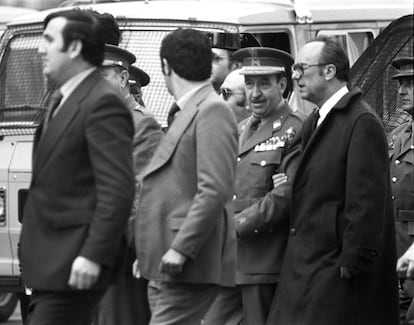
He then contacted the 11 captain generals to find out their position regarding the coup. “I think half supported the rebellion, but they would not dare engage in disobedience. I warned them: ‘Whoever rebels against the king is willing to provoke a civil war and will be held responsible,'” he recalls.
Juan Carlos I justified the delay in the message he addressed to the Spaniards via television by claiming that the TVE studios had been occupied by the rebels and they had to wait until a team could go to Zarzuela to make the recording. When he arrived, they hastily set up a makeshift study in his office and he donned his captain general’s tunic. “To go faster I didn’t wear pants,” he recalls. “I know I have been much criticized for not speaking on television sooner, but many hours passed incomprehensibly between the time I intended to address the country, at around 10.30pm, and the time my message was broadcast, at 1.15am,” he says. After 23-F a direct line was installed between La Zarzuela and RTVE. “I am convinced,” he says, “that my silence would have been taken as consent.”
Juan Carlos I admits that Armada might have thought of following the example of the French general Charles De Gaulle, whose return to power he lived in Paris, but assures that he never discussed this topic with him. When on 24 February 1981, having freed the hostages held at the Congress, the King received the political leaders in La Zarzuela, Suárez addressed him praising the role of the Armada. “He saved our lives. We must honor him!” he told him. “No Adolfo, you were right. Armada is a traitor,” he replied.

